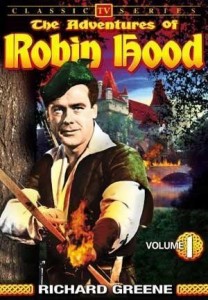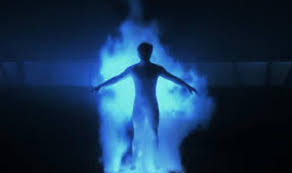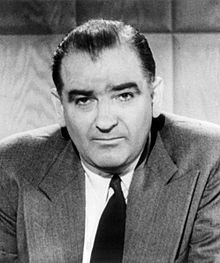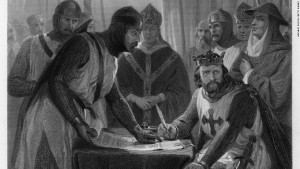King John of England signs Magna Carta at Runnymede 1215.
I am reflecting on the celebration of a historical event that took place 800 years ago. Why you ask? Because it is another thread that weaves through a Nebraska life’s journey I call my “Herstory.” As always, it connects first to 1950s entertainment I watched as a child in Blair, Nebraska. One of my favorite T.V. shows (and there were so many) was “The Adventures of Robin Hood” starring Richard Greene. Apart from the dashing male lead and his storied romance with the lovely Maid Marian, this show introduced some notions of populism and insurgency into my young life. It also launched my life long interest and later study of English History, and some bonus research into my ancestry.
 The lessons I learned in viewing this series boil down to: humans can and often will resist and even take collective action when their government exploits and demeans their existence.
The lessons I learned in viewing this series boil down to: humans can and often will resist and even take collective action when their government exploits and demeans their existence.
Robin Hood and his band of “Merry Men” were legendary champions of common folk around Sherwood Forest. The locals were being overtaxed and terrorized by the forces of a villainous Sheriff of Nottingham. The Sheriff enforced the decrees of Prince John who was running England in the absence of his brother, the ruling monarch, Richard I “the Lionhearted.”
Richard was apparently busy elsewhere in “The Crusades.” (Without digressing too much, Christian military campaigns had been organized to “rescue” Jerusalem and other holy places in the Near East from Muslim domination. A REALLY long story, if you are interested, Google it or visit a library.)
Focusing on my ruminations this week, the Prince John in the Robin Hood tales later became King John. He was defeated by a rebellion of his Barons at Runnymede. They insisted he sign a charter that came to be known as Magna Carta. This document recognized some rights for some people; i.e., most specifically the Church and his victorious noblemen. The charter memorialized that His Majesty, who had been led to believe his right to rule came directly from God’s will, would no longer be above certain laws. In addition, the rights at issue could be determined in legal proceedings. This has been conceptualized as “the rule of law.” This may not sound like a lot by modern standards. At the time, it was a huge deal. It was such a historic shift in power that John asked the Pope get him out of his agreement. The Pope jumped to his defense, but the arguable”reprieve” was short-lived and did not settle the matter. Needless to say, people were very excited and inspired by the opportunities presented.
 “Quantum Leap” to Nebraska 8 Centuries later
“Quantum Leap” to Nebraska 8 Centuries later
Our Declaration of Independence and Constitution of the United States followed the new path taken in Runnymede 800 years ago. We the People of the United States now understand that we have rights enforceable under laws. Attending elementary school, I learned and patriotically recited the Pledge of Allegiance. Through much repetition over the years, I came to appreciate and depend upon our collective oath to “Liberty and Justice for All.” This small town Nebraska girl took much comfort in the notion that Americans always stood for freedom as a guiding principle. This is one reason why I get so discouraged. We see politicians and community leaders working hard to deny or limit legal rights. The persuasion methods used by these advocates can certainly bother me. Images from a yesteryear of grifters and snake oil sales professionals come to mind. Finally, the continued success of such transparently reactionary forces regrettably tempts me to judge fellow citizens as ignorant and/or gullible. The latter assessment may be true in some cases, but it is not particularly helpful to focus on it.
Some comparisons to Prince/King John, the legendary Sheriff of Nottingham and The Crusades are troubling me today. I can think of elected leaders here in Nebraska who either lack understanding of the law, or see themselves as above the law. They promote partisan campaigns seemingly to ignore the trending of history toward democratic principles of Liberty, Justice and Equality. Some of these advocates may earnestly believe they are on a Divine mission to hold the line. They certainly still voice support for their freedom, public order and unrestrained wealth accumulation. What they fail to accept is that all these principles depend on “the rule of law.” We cannot keep legal protections for ourselves and deny them to others.
Nebraskans sometimes stand on the sidelines because we do not see our own rights immediately threatened. We may compliantly jump on a political bandwagon because we are too busy, angry or fearful to see the social and personal cost. Alternatively, we can stand up for ourselves and others; respecting “the rule of law.” This is the legacy our ancestors gave us to oppose tyrants. Can we resist self-absorbed, scornful and misguided politicians? It would seem to be the best choice. Will we avoid the antagonistic rhetoric, and do our part to promote civil discourse and responsible governing? Our Heartland state will be so much better if we do.
 United States Senator Joseph McCarthy
United States Senator Joseph McCarthy
As a little girl in Blair, I saw a political demagogue named Sen. Joseph McCarthy brought down and his followers humbled when responsible Americans stood up for important values like fairness and decency. His methods of reckless allegations and public character assassination turned the tide of political opinion. This moment in my lifelong T.V. viewership became a textbook lesson in how power can be used for good or evil. Sometimes, I feel a longing or nostalgia for those earlier decades when life seemed less complex and stressful. It may be human nature to cling to recollections and sensibilities of past years. If we stay in this “comfort zone” too long, however, we risk forfeiting our future progress and growth. For what it’s worth, I am endorsing the platform of mutual respect and civic responsibility today. Reflecting on “the rule of law” is a very good place to start.
Here are some topical musings on the Magna Carta to further illustrate the reasons we celebrate.
